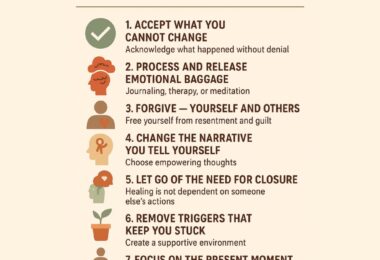The Transformative Power of Meditation: Unveiling Its Benefits
Meditation, an ancient practice rooted in numerous spiritual traditions, has transcended cultural boundaries to become a mainstream tool for enhancing well-being in today’s fast-paced world. While its origins date back thousands of years, modern science is continually uncovering how regular meditation reshapes the mind and body. Below, we explore the multifaceted benefits of meditation—mental, physical, emotional, and social—and why integrating even a few minutes of practice into your daily routine can yield profound, lasting change.
1. Enhancing Mental Clarity and Focus
-
Improved Attention Span
Mindfulness meditation trains you to remain present, gently bringing the focus back to your breath or chosen anchor whenever the mind wanders. Over time, this practice strengthens the brain’s attentional networks, leading to greater concentration and reduced distractibility in daily tasks. -
Sharper Cognitive Function
Studies have shown that consistent meditators often perform better on tasks requiring working memory and problem-solving skills. By reducing mental clutter, meditation allows cognitive resources to be allocated more efficiently, boosting creativity and decision-making.
2. Reducing Stress and Anxiety
-
Lower Cortisol Levels
Chronic stress triggers sustained elevations in cortisol—the “stress hormone”—which, over time, can impair immune function and increase the risk for various health issues. Meditation activates the body’s relaxation response, counteracting the stress response and helping to normalize cortisol production. -
Calm Amidst Chaos
Techniques such as body-scan meditation and loving-kindness meditation foster an attitude of nonjudgmental awareness and self-compassion. These practices can interrupt cycles of rumination and worry, providing a psychological buffer against anxiety.
3. Supporting Emotional Well-Being
-
Greater Emotional Resilience
By cultivating an ability to observe thoughts and feelings without becoming swept away by them, meditators develop resilience to life’s ups and downs. Over time, this leads to a more balanced mood and reduced emotional reactivity. -
Enhanced Self-Compassion
Practices focused on kindness toward oneself can transform the inner dialogue, replacing harsh self-criticism with understanding and care. This shift supports healthier self-esteem and broader well-being.
4. Promoting Physical Health
-
Cardiovascular Benefits
Regular meditation can lower blood pressure by inducing vasodilation (relaxation of blood vessels) and reducing sympathetic nervous system activity (the “fight or flight” system). These changes contribute to better heart health and decreased risk of hypertension. -
Stronger Immune Function
Mind-body practices have been linked to enhanced immune response, possibly through reductions in stress-related inflammation. Some research indicates that meditators experience fewer illnesses like the common cold.
5. Improving Sleep Quality
-
Easing Insomnia
Insomnia often stems from racing thoughts and heightened arousal at bedtime. Mindfulness practices gently guide the mind away from worries about the past or future, making it easier to unwind and fall asleep. -
Deeper, More Restorative Sleep
By reducing stress and promoting relaxation, meditation can increase time spent in slow-wave (deep) sleep, which is crucial for physical restoration and memory consolidation.
6. Boosting Productivity and Creativity
-
Flow States
The focused attention cultivated through meditation lays the groundwork for “flow”—a state of deep immersion and heightened performance in activities ranging from art to athletics. -
Enhanced Divergent Thinking
Open-awareness practices encourage a broad, receptive mode of attention, which can facilitate the generation of novel ideas and solutions.
7. Strengthening Relationships and Social Connection
-
Empathy and Compassion
Loving-kindness (metta) meditation systematically nurtures feelings of warmth and goodwill toward oneself and others. Practitioners often report increased empathy, better communication, and a greater sense of connectedness. -
Better Conflict Resolution
Mindful awareness allows for a pause between stimulus and response, enabling more thoughtful and less reactive interactions in personal and professional relationships.
Getting Started: Practical Tips
-
Begin Small
Start with just 5 minutes per day. Even brief sessions can yield measurable benefits, and consistency is more important than duration. -
Choose a Technique
-
Focused Attention: Concentrate on the breath or a mantra.
-
Open Monitoring: Observe thoughts and sensations without judgment.
-
Loving-Kindness: Cultivate compassion through specific phrases or visualizations.
-
-
Set a Routine
Practice at the same time and place each day—perhaps first thing in the morning or before bed—to build a lasting habit. -
Use Guided Resources
Apps, online recordings, and local meditation groups can provide structure and support, especially for beginners.
Conclusion
Meditation offers a rich range of benefits, from sharper focus and emotional resilience to improved physical health and deeper social bonds. Its flexibility—requiring no special equipment and adaptable to varied schedules—makes it accessible to nearly everyone. Whether you seek stress relief, enhanced creativity, or simply a greater sense of well-being, dedicating a few moments each day to mindfulness can catalyze positive transformations that ripple through every aspect of life.
“Meditation is not an escape from life, but a return to the present moment, where life unfolds in all its richness.”
Embrace the journey inward, and discover how the simple act of turning your attention within can profoundly change the world around you.









